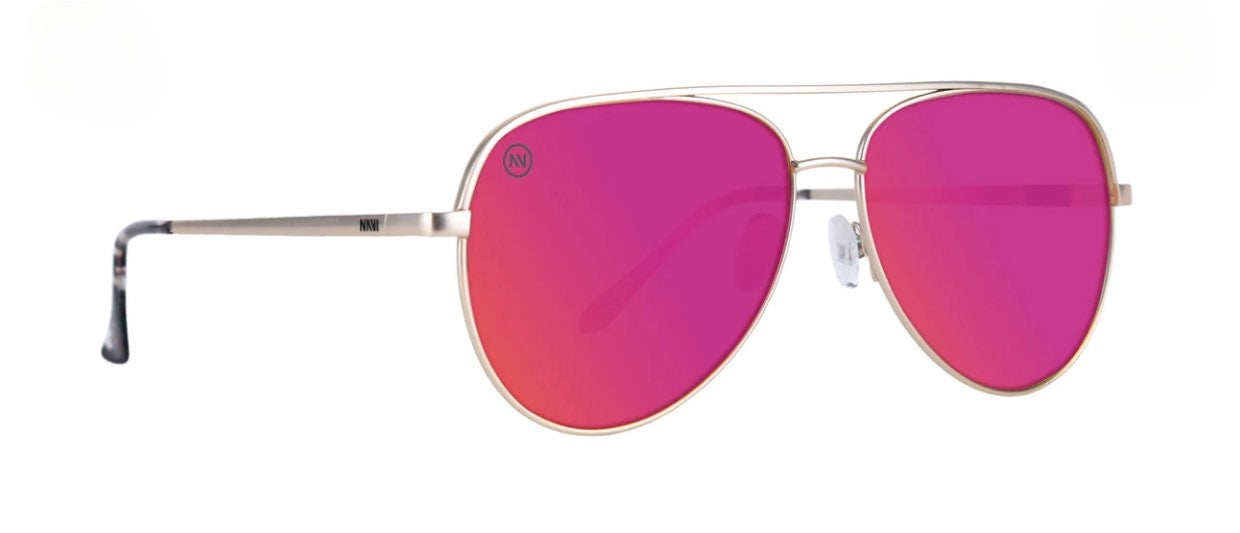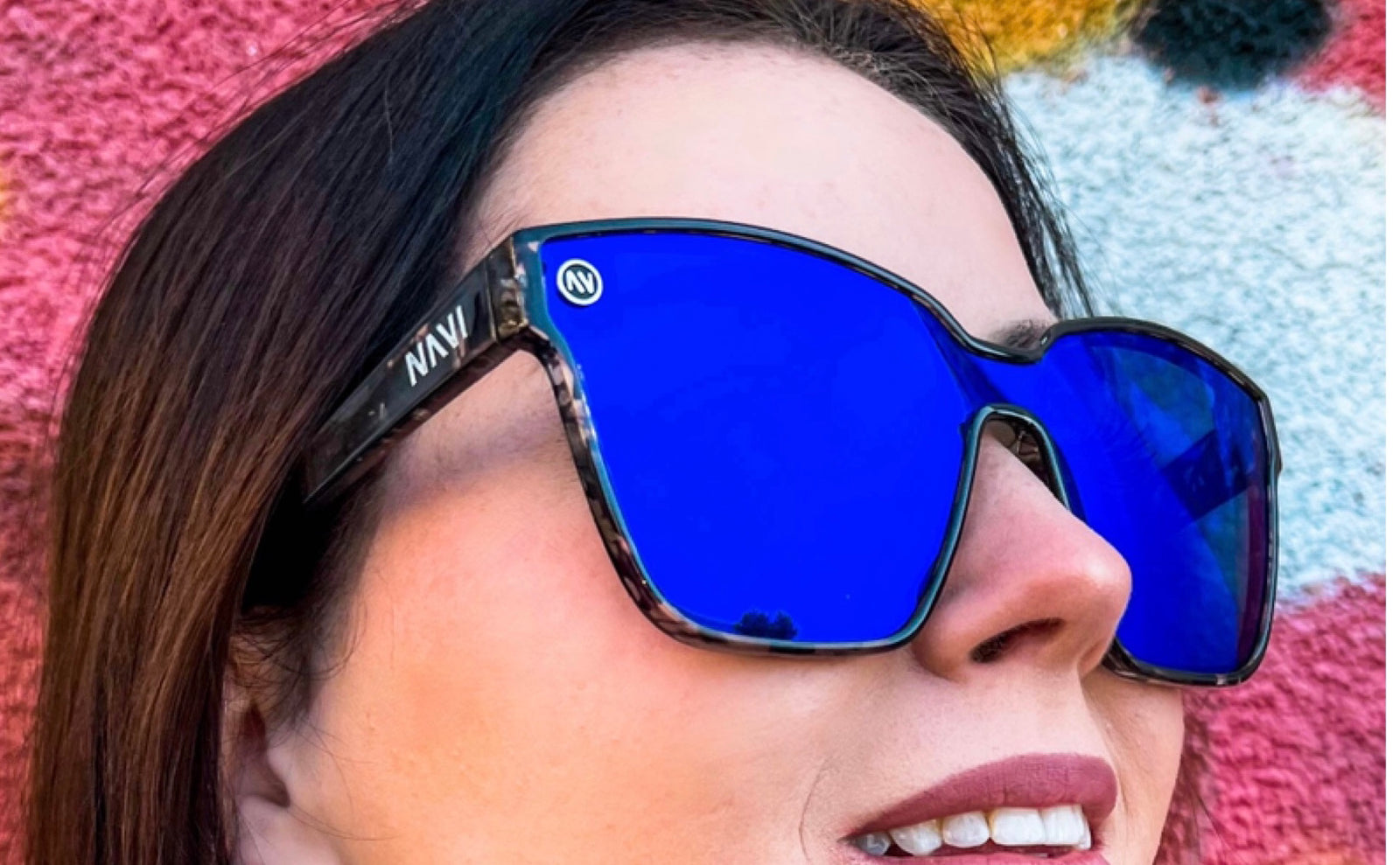Sunglassesare an essential accessory for many people, especially those who wear prescription glasses. But finding the right pair of sunglasses that fit comfortably and accommodate your prescription can be a challenge. In this article, we'll discuss how to choose sunglasses for people with glasses, including factors to consider when shopping, different styles of frames to look for, and tips for finding the perfect fit.
Factors to Consider When Choosing Sunglasses for People with Glasses
When shopping for sunglasses, there are several factors to consider, especially for those who wear prescription glasses. Here are some key things to keep in mind:
Prescription Strength
Your prescription strength is an essential factor to consider when choosing sunglasses. If you have a strong prescription, you may need a thicker frame to accommodate the lenses. On the other hand, if you have a weaker prescription, you may have more flexibility when it comes to choosing frames.
Lens Material
The material of your lenses can affect how compatible they are with different types of sunglasses. For example, glass lenses can be heavy, so you may need a frame with sturdy arms to support them. Polycarbonate lenses, on the other hand, are lightweight and more flexible, so they may be a better option for frames with thinner arms.
UV Protection
It's essential to choose sunglasses that offer UV protection to help protect your eyes from harmful UV rays. Look for sunglasses with lenses that block 100% of UVA and UVB rays to ensure maximum protection.
Polarization
Polarized lenses can help reduce glare, which can be especially helpful when driving or spending time outdoors. However, polarized lenses can sometimes interfere with the clarity of digital screens, so keep this in mind if you plan to wear your sunglasses while using your phone or computer.
Styles of Frames to Look for
When it comes to choosing frames for sunglasses, there are several styles to consider that can work well for people with glasses. Here are some popular options:
Wayfarer
The classic wayfarer style is a popular choice for sunglasses because of its timeless look and versatility. Wayfarer frames typically have a thick, sturdy frame that can accommodate prescription lenses.
Aviator
Aviator sunglassesare another classic style that can work well for people with glasses. Aviator frames typically have thin arms and a wire frame, making them lightweight and comfortable to wear.
Wraparound
Wraparound frames can be a good option for people who want more coverage and protection from the sun. These frames typically have a curved design that wraps around the sides of your face, providing additional coverage and reducing the amount of light that gets in.
Sports
If you're looking for sunglasses to wear during physical activity, sports sunglasses can be a good choice. These frames typically have a lightweight, durable design that can withstand more wear and tear.
Tips for Finding the Perfect Fit
Finding the right pair of sunglasses that fit comfortably and accommodate your prescription can be a challenge. Here are some tips to help you find the perfect fit:
Try Them On
Before purchasing sunglasses, it's essential to try them on to ensure they fit comfortably and securely. Look for frames that sit comfortably on the bridge of your nose and don't slide down when you move your head.
Look for Adjustable Frames
Some frames are adjustable, which can be helpful for people with glasses. Look for frames with adjustable nose pads or temples to ensure a comfortable fit.
Consider Lens Size
The size of your lenses can affect how well your sunglasses fit and how much coverage they provide. Look for lenses that are large enough to cover your eyes without being too bulky or heavy.
Consult with an Optometrist
If you're unsure about which sunglasses to choose, consider consulting with an optometrist. An optometrist can help you find frames that fit your prescription and face shape and recommend specific lens materials or coatings that may be beneficial.
Don't Forget About Style
While comfort and functionality are essential when choosing sunglasses, don't forget about style. Look for frames that complement your face shape and personal style. Choosing sunglasses that you feel confident and comfortable wearing can make all the difference.
Conclusion
Choosing sunglasses for people with glasses can be a daunting task, but with the right knowledge and guidance, it doesn't have to be. When shopping for sunglasses, consider your prescription strength, lens material, UV protection, and polarization. Look for frames that fit comfortably, are adjustable, and complement your personal style. Don't be afraid to consult with an optometrist for additional guidance. With the right pair of sunglasses, you can protect your eyes and look great doing it.
FAQs
-
Can I wear any sunglasses with my prescription glasses? It depends on the strength of your prescription and the type of sunglasses. Some sunglasses may not be compatible with certain prescription lenses, so it's important to consult with an optometrist before making a purchase.
-
How do I know if sunglasses offer UV protection? Look for sunglasses that have lenses that block 100% of UVA and UVB rays. This information should be listed on the product tag or packaging.
-
Are polarized lenses worth it? Polarized lenses can be beneficial for reducing glare, especially when driving or spending time outdoors. However, they may not be necessary for everyone and can sometimes interfere with the clarity of digital screens.
-
Can I wear sports sunglasses for everyday use? Yes, sports sunglasses can be a good choice for everyday use, especially if you're looking for a durable and lightweight frame.
-
What if I don't like the sunglasses I purchased? Most stores offer a return or exchange policy, so if you're not satisfied with your purchase, you can typically return or exchange the sunglasses for a different pair. Be sure to check the store's policy before making a purchase.




